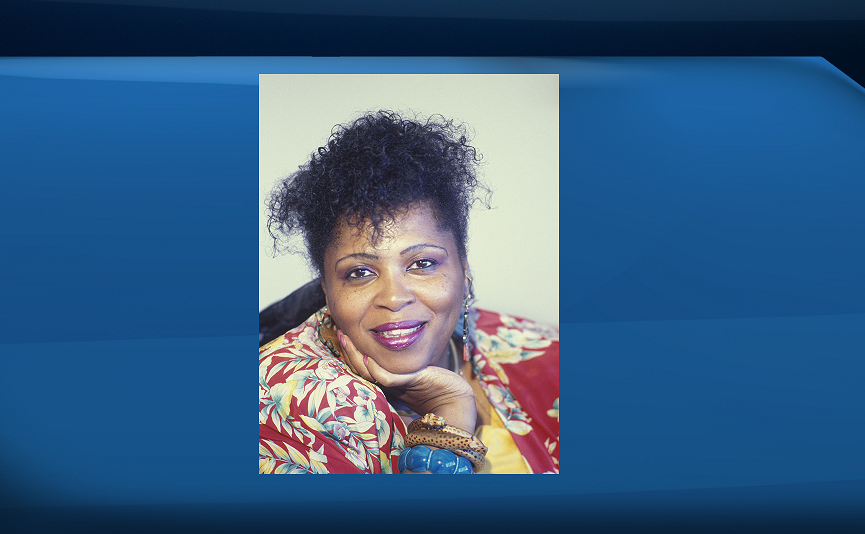When the Writers’ Federation of Nova Scotia (WFNS) named its new poetry award in honour of the late writer Maxine Tynes in February, her publisher was pleasantly surprised.

“There is a tendency these days for writers, when they pass on, that their work is sort of remembered and then it fades. And that’s especially true in Atlantic Canada,” said Lesley Choyce, Maxine’s publisher and founder of Pottersfield Press.
“(Maybe because) we don’t have the academic or commercial machinery that keeps literature alive all that easily. So I think it’s wonderful when anything comes up that brings back some of the voices from the not-so-distant past and to keep them alive, I’m sure Maxine would appreciate that,” he added.
According to WFNS, the Maxine Tynes Nova Scotia Poetry Award will be awarded every other year for the best book of poetry written by a Nova Scotian writer.
Maxine was a celebrated poet, teacher, and lifelong resident of Dartmouth, Nova Scotia. A descendant of Black Loyalists, she drew on their rich and enduring heritage in her writing, the organization said.
Her poems explored her Blackness, feminism, and physical disability. Maxine contracted polio as a child, and complications brought on by the disease led to her death in 2011 at the age of 62.
The WFNS stated that she wrote four books of poetry, all published by Pottersfield Press. Her first, Borrowed Beauty (1987), announced her as a major new talent and received the Milton Acorn People’s Poetry Award, recognizing her as a People’s Poet of Canada.

Her later books include Woman Talking Woman (1990) and The Door of My Heart (1993), as well as a collection of poetry for children, Save the World For Me (1991).
The organization said that Maxine championed the search for Black Nova Scotian identity and community.

Get breaking National news
“We are constantly looking for who we are,” she wrote in Borrowed Beauty. “So many signals have been lost historically and culturally along the way.”
Choyce said he and Maxine were both writers who were interested in poetry when they met in the 1980s through the Writers’ Federation of Nova Scotia (WFNS).
- Canadians involved in tourist bus crash in Dominican Republic, embassy says
- Ottawa requests use of Omani airspace to assist Canadians in Gulf: Anand
- In London, Poilievre pitches new UK, Australia, New Zealand partnership
- Alberta mulls ditching time switch — again — as B.C. moves to permanent daylight
“Maxine was a very unique person who had a great charisma. I noticed that people really were attracted to her because she was very outgoing and her poetry was very much accessible…that spoke from her own personal experience,” he said.
However, he never imagined that her poetry would become so popular because “poetry is the hardest thing in the world to sell as a publisher,” Choyce explained.
“Maxine’s poetry simply connected with people, and she was was really good at doing performances, and so it kind of took off.”
Missing role models for Black students
Maxine was also an English teacher at Cole Harbour High and Auburn Drive High schools, where she worked for a combined 31 years. For excellence in teaching, she received a Canada Medal from the Governor General in 1993.
A few years after she died, Evelyn C. White, the author of Alice Walker: A Life and a resident of Halifax, stood in front of what she calls a “magnificent portrait” of Maxine Tynes at the Alderney Gate Public Library in a room that’s named after her.
White thought it as a “very bizarre irony” that there was this magnificent portrait of a celebrated poet and educator yet so many African Nova Scotians still struggle with accessing education and finding employment.
She has witnessed that working as an English composition tutor for the past five years, helping students, who were primarily Nova Scotian, improve their skills and complete their GED.
“As someone who was educated from kindergarten to grade 10 by dedicated Black teachers, I knew what a difference it had made in my life. And so that these students of mine had never had Black teachers was astounding to me,” White said.
She said that Tynes wrote a poem called “Head Count: Black Students in My Academic Nest,” indicating the missing role models for Black students in the province, and how she related to them even though she was an educator at the time.
“Head Count: Black Students in My Academic Nest”
By Maxine Tynesthe drift
the crowd, and then
the ones and the twos of you
the odd and too few
dark faces in a class set of you
we eye-connect
across a sea of chalkdust
and of desks
Black students in my academic nest
at arms length
I hear and I share your bravado and your banter
I jump-back time
I am you againwe know the beast-beat of salmon
against the tide
against the tideFrom The Door of My Heart (Pottersfield Press, 1993)
White said having the award be named after Maxine Tynes “during this time of racial reckoning, since the murder of George Floyd is very significant.”
“I also think that the inaugural poem that Amanda Gorman gave at the inauguration of Joe Biden and Kamala Harris that went viral around the world, showed the power of poetry,” she added.

The kind of power that readers sense while reading Maxine Tynes’ work, and with this award White said it will inspire even more poets of diverse backgrounds to share their personal experiences.
“It’s a huge tribute to her. And I would imagine anyone who will receive the Maxine Tienes Poetry Award is going to have to be very proud of themselves.”
The inaugural award will be presented this year during the Atlantic Book Awards virtual gala on May 13.








Comments
Want to discuss? Please read our Commenting Policy first.